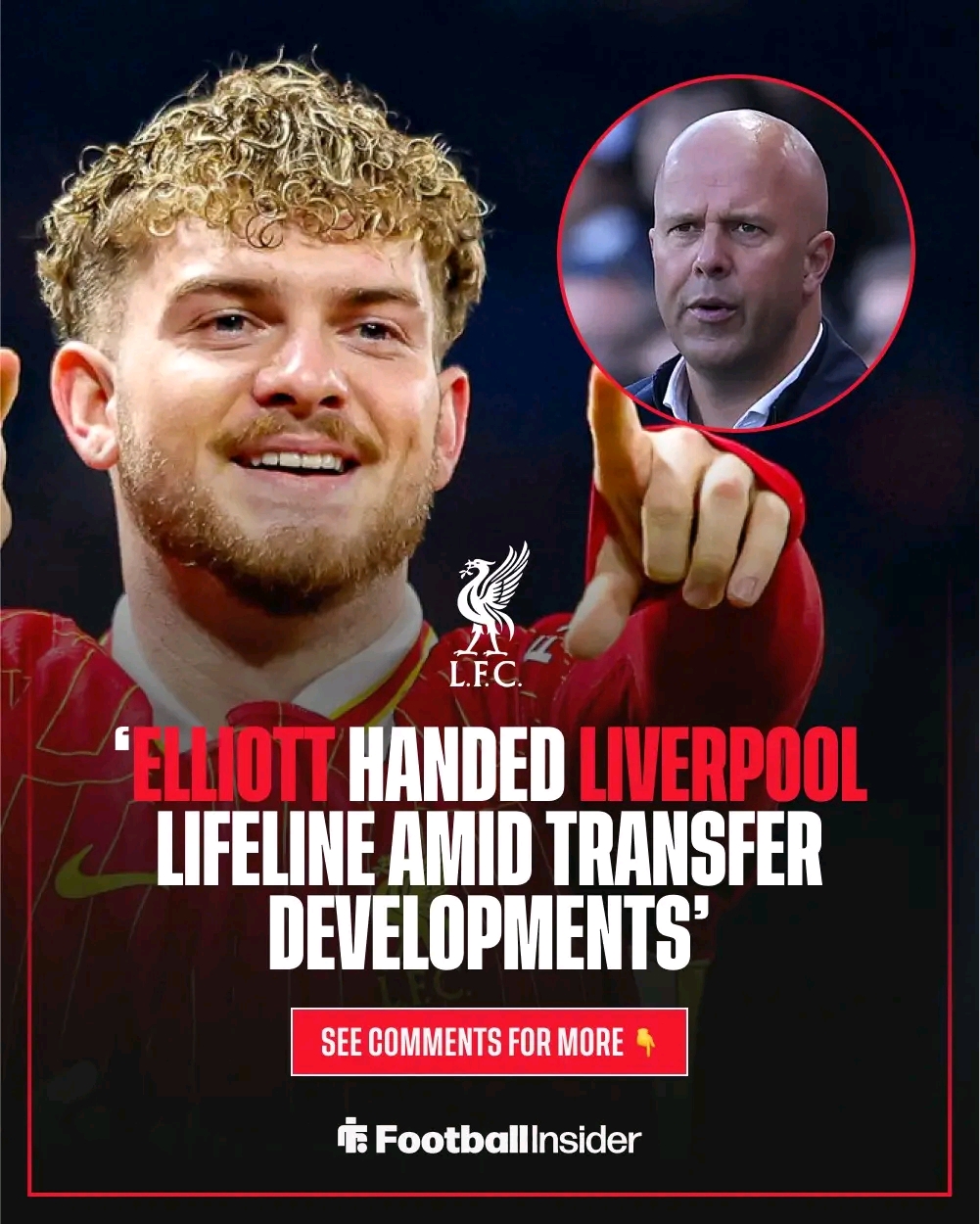Harvey Elliott’s Golden Opportunity: A Liverpool Career at the Crossroads

The summer of 2025 has presented Harvey Elliott with what could be the defining moment of his Liverpool career. As the Merseyside club navigates a period of significant transition under manager Arne Slot, the 22-year-old midfielder finds himself at the center of a compelling narrative that could reshape both his individual trajectory and Liverpool’s tactical approach for the upcoming season.
Elliott’s recent triumph at the Under-21 European Championships has provided the perfect backdrop for what appears to be a career-defining opportunity at Anfield. His instrumental role in England’s successful title defense, culminating in a thrilling 3-2 victory over Germany in the final, has not only showcased his talent on the international stage but has also attracted significant interest from other Premier League clubs eager to secure his services.
The timing of Elliott’s continental success could not have been more fortuitous. As Liverpool grapples with the impending departure of Luis Diaz to Bayern Munich, Elliott’s European exploits have served as a timely reminder of his capabilities and potential value to the squad. The 28-year-old Colombian winger’s exit to the Bundesliga giants represents more than just the loss of a talented player; it signals a shift in Liverpool’s attacking dynamics that could benefit Elliott significantly.
Diaz’s departure is particularly significant given his contributions to Liverpool’s title-winning campaign last season. The South American’s pace, directness, and ability to stretch defenses from the left flank made him an integral part of the team’s attacking arsenal. His decision to seek a new challenge in Germany, while understandable from a personal development perspective, leaves a considerable void in Liverpool’s wide attacking options.
Elliott’s path to this pivotal moment has been anything but straightforward. Having arrived at Liverpool six years ago as a promising teenager, his journey has been characterized by flashes of brilliance interspersed with periods of frustration over limited playing time. His record of 147 appearances across all competitions, yielding 15 goals and 20 assists, tells the story of a player who has consistently contributed when given the opportunity but has struggled to establish himself as a regular starter.
The statistics, while respectable, perhaps don’t fully capture Elliott’s impact during his time at Anfield. His technical ability, vision, and understanding of the game have been evident in his appearances, but the challenge has always been finding a consistent role within Liverpool’s star-studded squad. The presence of established world-class talents has meant that opportunities have often been limited to substitute appearances or starts in cup competitions.
However, Elliott’s performances during Liverpool’s current pre-season tour of Asia, including their 4-2 defeat to AC Milan in Hong Kong, suggest a player who is ready to seize any opportunity that comes his way. The pre-season has provided valuable minutes for Elliott to demonstrate his readiness for a more prominent role, particularly important given the tactical adjustments that new manager Arne Slot is implementing.
The potential integration of Elliott into Liverpool’s starting XI presents fascinating tactical possibilities for Slot. With Mohamed Salah’s position on the right flank seemingly secure and the recent acquisition of Florian Wirtz expected to operate primarily in the number 10 role, the left wing position vacated by Diaz appears tailor-made for Elliott’s skill set.
Elliott’s versatility represents one of his greatest assets in this context. While primarily deployed as a central midfielder during his Liverpool career, his technical proficiency and attacking instincts make him well-suited to a wide role. His ability to drift infield, combine with teammates in tight spaces, and contribute both defensively and offensively could provide Slot with the tactical flexibility that modern football demands.
The shift to a left-wing role would also allow Elliott to showcase different aspects of his game. His crossing ability, pace in wide areas, and capacity to cut inside onto his stronger foot could add a new dimension to Liverpool’s attacking play. Moreover, his understanding of the club’s tactical principles, developed over six years of training and sporadic appearances, means that any positional adjustment would likely be seamless.
Liverpool’s summer transfer activity has been notable for its ambition, with Slot’s squad overhaul reportedly exceeding £200 million in expenditure. The potential addition of Alexander Isak for up to £150 million would represent a significant further investment in the squad’s attacking capabilities. However, such expenditure raises questions about the club’s ability to adequately replace departing players, particularly in wide positions.
The financial reality facing Liverpool may actually work in Elliott’s favor. Rather than seeking an expensive replacement for Diaz in the transfer market, promoting Elliott to a more prominent role represents both an economical and potentially effective solution. This approach aligns with Liverpool’s historical preference for developing talent from within while maintaining competitive standards.
The acquisition of Hugo Ekitike from Eintracht Frankfurt, combined with the potential arrival of Isak, suggests a tactical evolution that could see Liverpool operating with multiple striker options. This formation flexibility could create additional opportunities for Elliott, whether deployed as a traditional winger or in a more fluid attacking role that takes advantage of his creativity and technical ability.
The departure of key wide players extends beyond Diaz’s exit to Bayern Munich. Federico Chiesa’s expected departure and the reported interest from Crystal Palace in promising young winger Ben Doak further highlights Liverpool’s potential shortage of natural wide players. This exodus could leave Slot with limited options in wide areas, making Elliott’s retention and promotion to a starting role increasingly critical.
The manager’s challenge lies in balancing squad depth with the development of existing talent. Elliott’s proven Premier League experience, combined with his recent international success, positions him as a logical candidate to fill the void left by departing players. His familiarity with Liverpool’s playing style and tactical demands provides an advantage over potential external signings who would require time to adapt.
The interest from other Premier League clubs in Elliott’s services adds another layer of complexity to Liverpool’s planning. The risk of losing a talented homegrown player to a domestic rival, particularly one who has shown significant improvement and international recognition, would represent both a sporting and commercial loss for the club.
Elliott’s potential elevation to a key role must be viewed within the broader context of Liverpool’s evolution under Slot. The Dutch manager’s appointment represents a new chapter for the club, with fresh tactical ideas and philosophical approaches being implemented. This period of transition creates opportunities for players like Elliott to establish themselves within the new system.
Slot’s tactical preferences, developed through his successful tenure at Feyenoord, emphasize technical proficiency, positional intelligence, and tactical flexibility – attributes that align closely with Elliott’s strengths. The manager’s willingness to trust young players and integrate them into his tactical framework could provide Elliott with the consistent opportunities that have been elusive during his Liverpool career.
The pre-season period becomes crucial in this context, offering Elliott multiple opportunities to demonstrate his readiness for increased responsibility. His performances in training sessions, friendly matches, and tactical exercises will likely influence Slot’s decisions regarding squad composition and starting lineups for the upcoming campaign.
Elliott’s starring role in England’s Under-21 European Championship triumph cannot be understated in terms of its impact on his confidence and profile. International success at any level provides players with validation of their abilities and often serves as a catalyst for improved club form. The experience of performing under pressure in high-stakes matches, combined with the responsibility of representing his country, has likely contributed to Elliott’s development as both a player and a person.
The tournament also provided Elliott with extended minutes at a high competitive level, something that has been intermittent during his Liverpool career. This match fitness and rhythm could prove invaluable as he seeks to establish himself in Slot’s plans for the new season. The confidence gained from international success often translates directly to club performances, creating a positive cycle of improvement and opportunity.
Moreover, Elliott’s international recognition has elevated his profile within the football community, potentially increasing Liverpool’s reluctance to allow him to leave for another Premier League club. The prospect of a homegrown international talent flourishing at a rival club would be particularly galling for Liverpool supporters and management alike.
From Liverpool’s perspective, the decision to rely on Elliott as a replacement for Diaz represents a calculated risk with potentially significant rewards. The downside includes the possibility that Elliott may not adapt successfully to regular first-team football at the highest level, potentially leaving Liverpool short of quality in wide areas during crucial periods of the season.
However, the potential rewards are considerable. Should Elliott successfully establish himself as a key player, Liverpool would have solved a positional concern while developing a valuable asset. His homegrown status, age profile, and existing contract situation make him an attractive proposition from both sporting and financial perspectives.
The risk calculation is further complicated by the competitive landscape of the Premier League and Liverpool’s ambitions across multiple competitions. The margin for error in squad construction is minimal when competing at the highest level, making any personnel decisions particularly consequential.
As Liverpool prepares for their first league match in just over two weeks, Elliott’s situation epitomizes the broader themes of opportunity, development, and tactical evolution that will define the club’s season. His ability to seize the moment and establish himself as a key player could have ramifications extending far beyond individual success.
The coming months will test Elliott’s mental fortitude, technical ability, and tactical understanding in ways that his previous Liverpool experiences have not. Regular first-team football brings different pressures and expectations compared to sporadic appearances, requiring adjustments in preparation, performance, and mindset.
For Slot, Elliott’s development represents both an opportunity and a challenge. Successfully integrating Elliott into a key role would demonstrate the manager’s ability to develop existing talent while maintaining competitive standards. Conversely, any struggles could raise questions about squad planning and tactical decision-making.
The 2025-26 season may ultimately be remembered as the campaign when Harvey Elliott finally fulfilled his potential at Liverpool, or as the missed opportunity that preceded his departure to pastures new. Either way, the stage is set for a compelling narrative that will captivate Liverpool supporters and neutral observers alike.
As Elliott prepares to embrace what could be the defining period of his career, the convergence of circumstance, opportunity, and talent creates the perfect environment for a breakthrough season. Whethe















